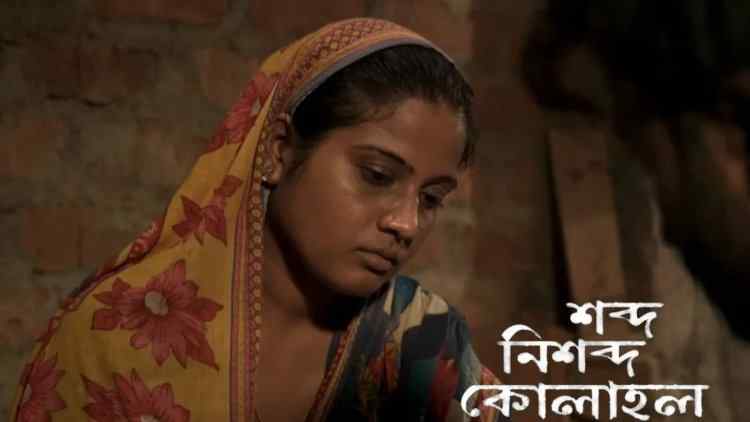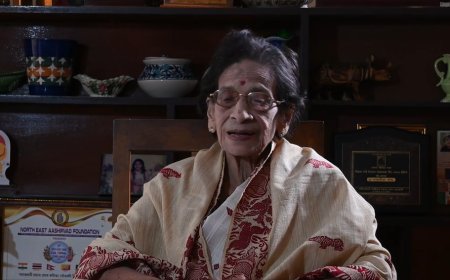Dhanjit Das' anthology film Xobdo Nixobdo Kolahol: Soul of Silence is a keenly tuned exploration of various upheavals in a relationship that thrives despite the stresses of conflicting desires and quirks of fate.
Film critic Dipankar Sarkar analyses the anthology film Xobdo Nixod Kolohol: Soul of Silence by Dhanjit Das with keen insight.

Debutant filmmaker Dhanjit Das' anthology film Xobdo Nixobdo Kolahol: Soul of Silence is a keenly tuned exploration of various upheavals in a relationship that thrives despite the stresses of conflicting desires and quirks of fate. The three emotionally resonant offerings have a simplicity of treatment in the delineation of people belonging to lower rungs of our society with a genuine feel for human values and affinity.
The first story, The Sound, introduces us to Malaya (Anamika Sarania), a lonely wife, who spends her days attending to the daily chores. Her carpenter husband is a chronic alcoholic and returns home at night to satiate his hunger and carnal desires. He does not have any emotional attachment to his wife. One day, when his liaison with a young woman is exposed, the agitated villagers get him forcefully married to her. The inclusion of this new member in his family creates friction in his relationship with Malaya. In the second tale, The Silence, we come across Kala (Jeet Baruah) who is deaf due to medical negligence and works in a stone crusher mill. He has a cordial relationship with his colleagues and lives a contended life. But one day he nearly escapes from a life-and-death situation. The supervisor takes him to a physician who provides him with a hearing aid. Now as he starts to hear properly, he realises that he is being mocked by people whom he considered to be his friend. In the final instalment, The Dissonance, we come across a Bengali-speaking Muslim couple, Nur (Prasanta Kalita) and Ruksana (Swagata Bharali), who are labourers. In an unfortunate turn of destiny, they lose their infant due to an accident. How the couple copes with the loss of their child is what the rest of the story is about.
Xobdo Nixobdo Kolahol is a slow-burn and richly layered drama aided by compelling storytelling by any standards. It provides a medium to stare long and hard at people’s withholding exteriors and silently witness how they patiently bear their emotional burdens. There is a subtlety with which Dhanjit handles the treatment of each of these stories that impactfully creates poignantly charged beats. It provides a fleeting connection to these otherwise lonely souls in their rare moments of honest vulnerability. This is a film that understands how seldom people really know or understand each other even when they are so close to one another.
However, out of the three stories, The Silence displays better control over the content and craft. The characterisation emerges richly through the acting. Jeet Baruah steps comfortably into the shoes of the differently abled character of Kala and brings conviction to the role. Even the framing of the character by Chandra Kumar Das, the cinematographer, provides psychological depth to the character. The other two stories are not as efficacious as they should have been because the performances are not compelling enough to empathise with the predicament of the characters.
The editing by Simanta Das and Hirakjyoti Pathak maintains uniformity in the three stories. The sound design by Janardan Patowary uses ambient sounds ingeniously to create varying soundscapes for the three different stories set in different environments.
Xobdo Nixobdo Kolahol is an assured debut and the filmmaker has displayed his acumen as a storyteller. At a time, when Assamese films are pandering to formulaic conventions, this film is something worthy of bragging about. Dhanjit Das and producer Monita Borgohain should be applauded for their plucky undertaking.
***
About the author: Dipankar Sarkar is an Indian film critic and an alumnus of FTII, Pune.
What's Your Reaction?

































































